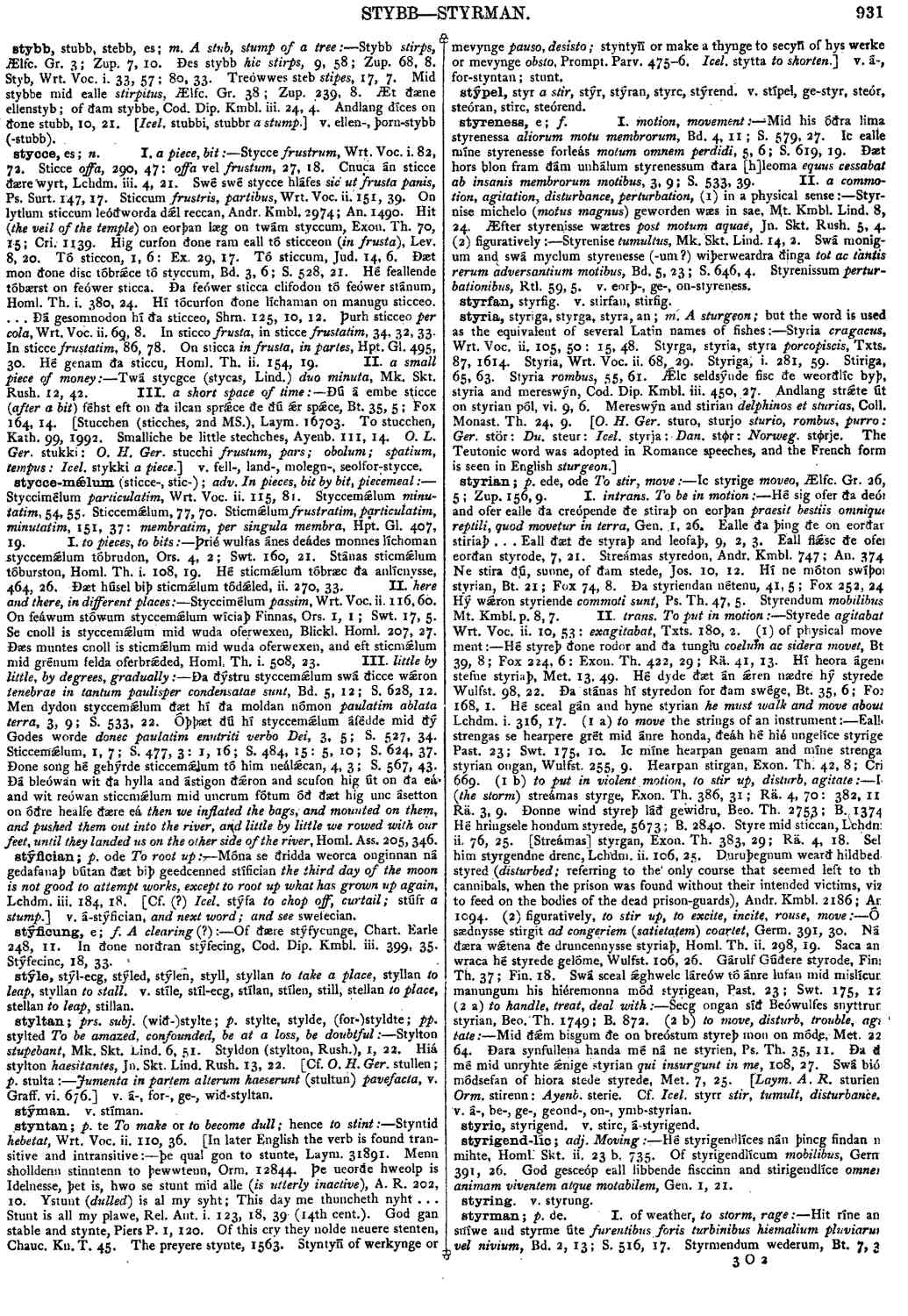styntan
- verb [ weak ]
- Wrt. Voc. ii. 110, 36.
- Laym. 31891.
- Orm. 12844.
- A. R. 202, 10.
- Rel. Ant. i. 123, 18, 39 (14th cent.).
- Chauc. Kn. T. 45.
- Prompt. Parv. 475-6.
Bosworth, Joseph. “styntan.” In An Anglo-Saxon Dictionary Online, edited by Thomas Northcote Toller, Christ Sean, and Ondřej Tichy. Prague: Faculty of Arts, Charles University, 2014. https://bosworthtoller.com/29254.
Checked: 0